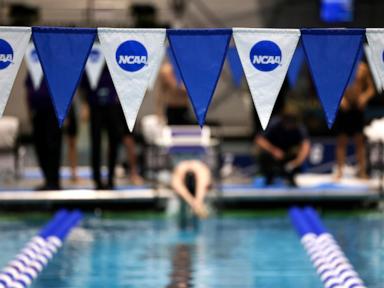


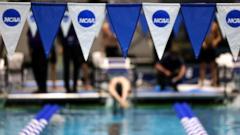

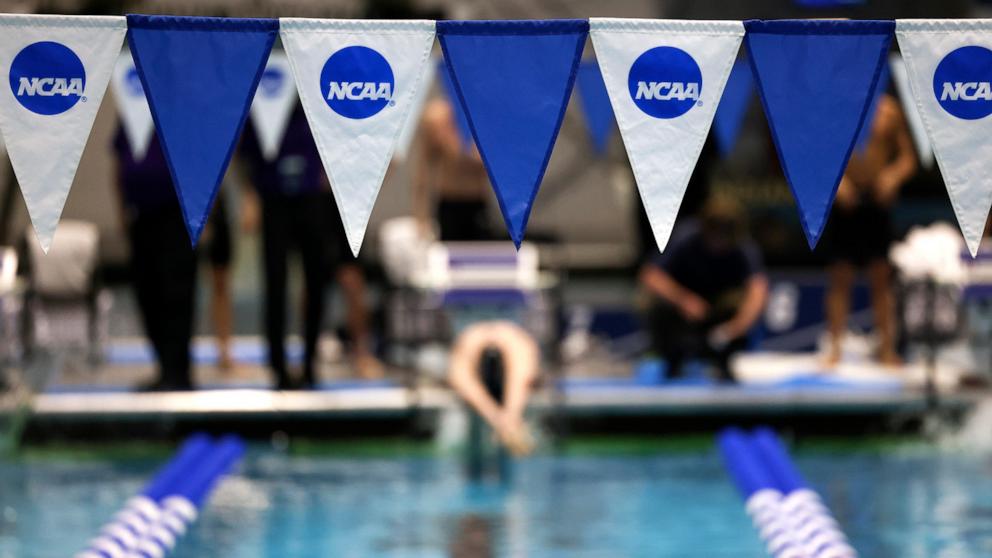
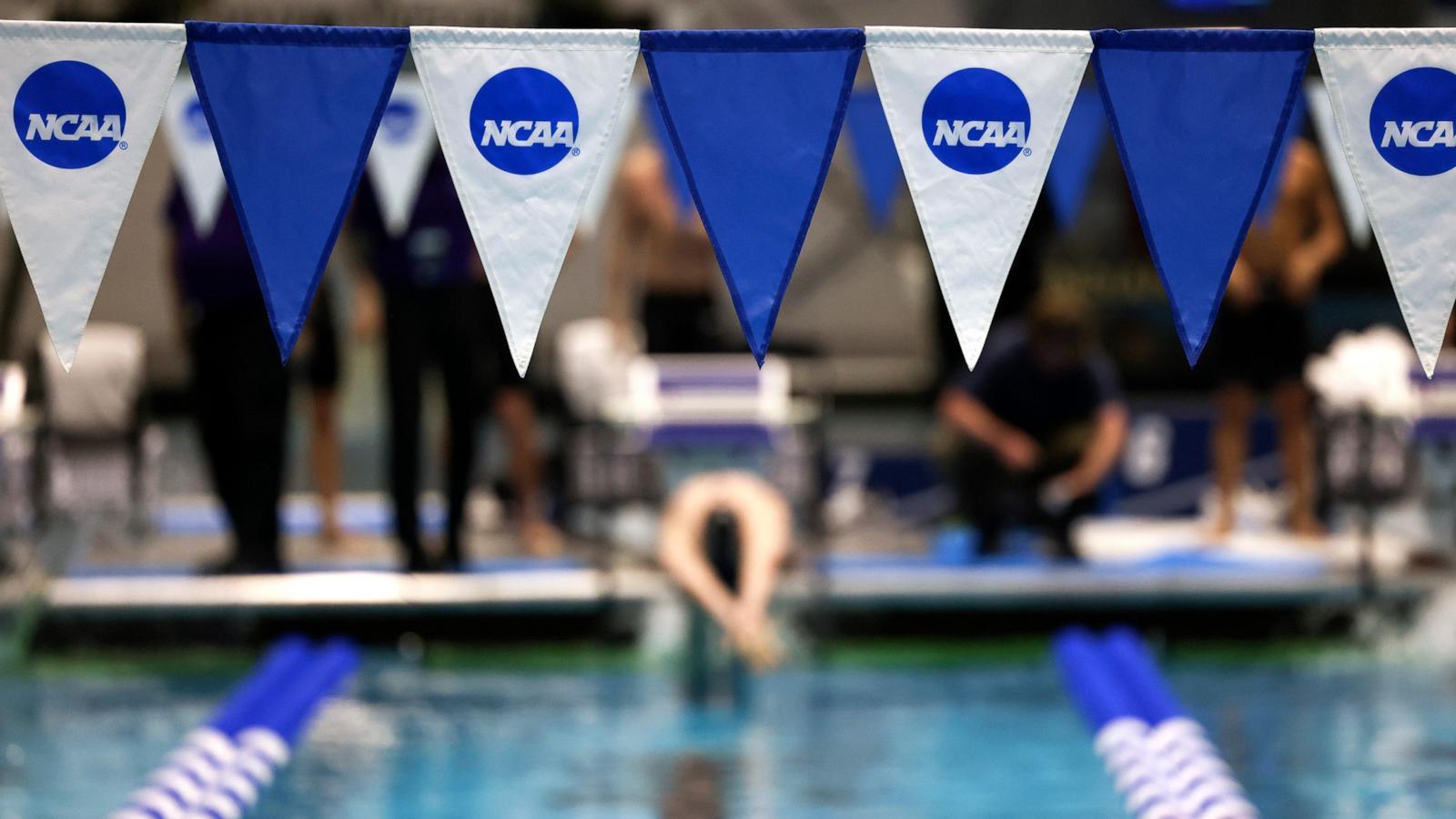
The National Collegiate Athletic Association’s board of governors voted to update the association’s participation policy for student-athletes following President Donald Trump’s executive order banning transgender athletes from participating in women’s sports.
The new policy only allows student-athletes assigned female at birth to participate in women’s sporting competitions. However, student-athletes assigned male at birth will still be allowed to practice with women’s teams and receive benefits, like medical care, while practicing.
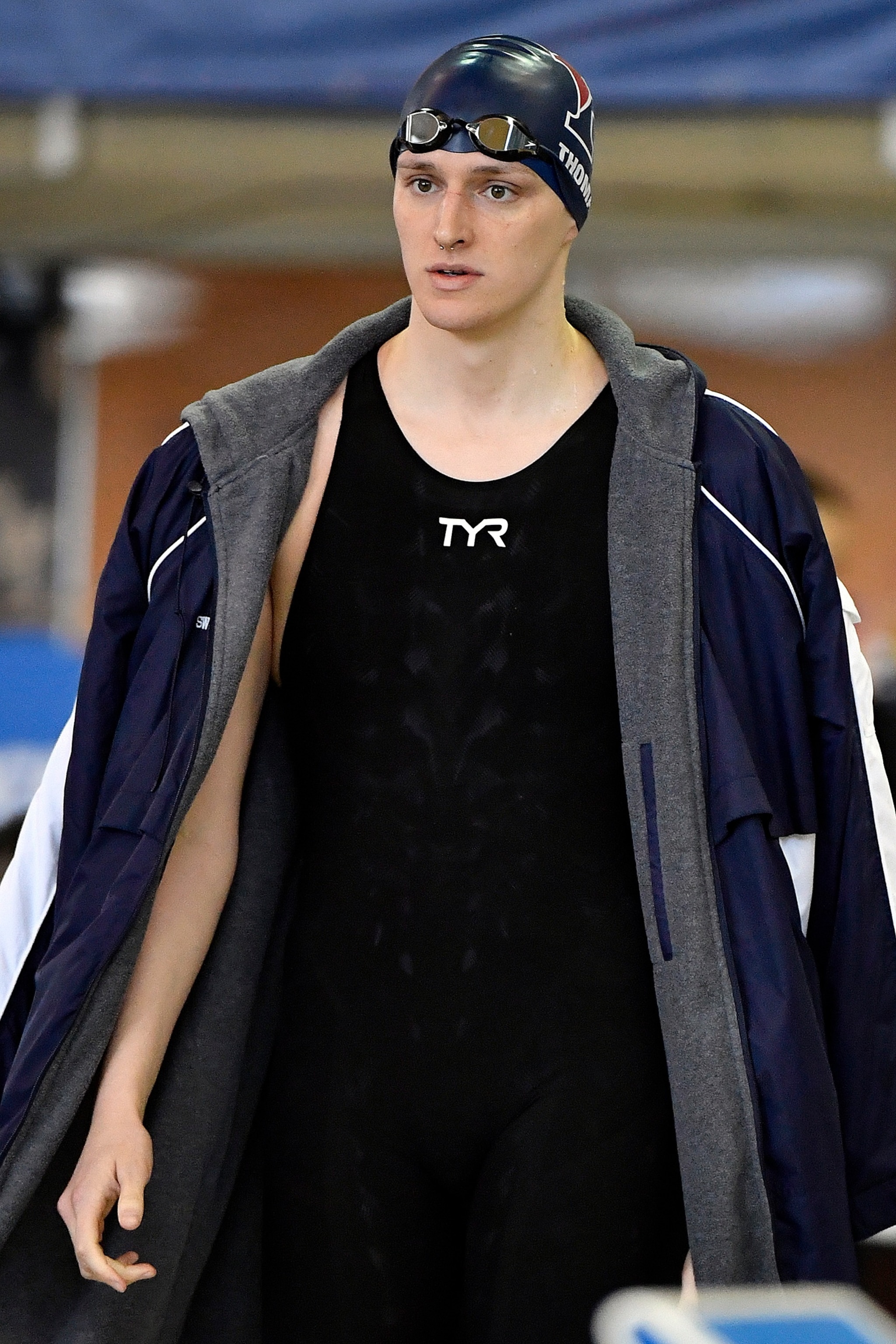
In this March 17, 2022, file photo, Lia Thomas walks behind the blocks for the Women’s 500 Yard Freestyle during the 2022 NCAA Division I Women’s Swimming & Diving Championship at the McAuley Aquatic Center on the campus of the Georgia Institute of Technology in Atlanta.
Mike Comer/NCAA Photos via Getty Images, FILE
An athlete who is undergoing hormone therapy, such as testosterone, is also barred from competing on a women’s team, according to the new policy.
This may impact athletes who do not identify as and would otherwise not be considered transgender.
“Testosterone can be important in women for bone density and muscle mass, cognitive function, mood, sexual function, and energy,” according to a 2020 article in the British Journal of General Practice, available through the National Library of Medicine on the National Institutes of Health website. “Adequate levels of testosterone are important for the maintenance of musculoskeletal health and possibly vascular and brain function.”
Eliminating transgender women from women’s sports was a promise central to Trump’s 2024 campaign.
But it’s not the only executive order affecting the transgender community — which is estimated to make up less than 1% of the population over the age of 13.
Trump also recently signed executive orders restricting transgender participation in the military, criminalizing gender-affirming medical care for people under 19, and forbidding the use of nonbinary gender markers on federal documents.
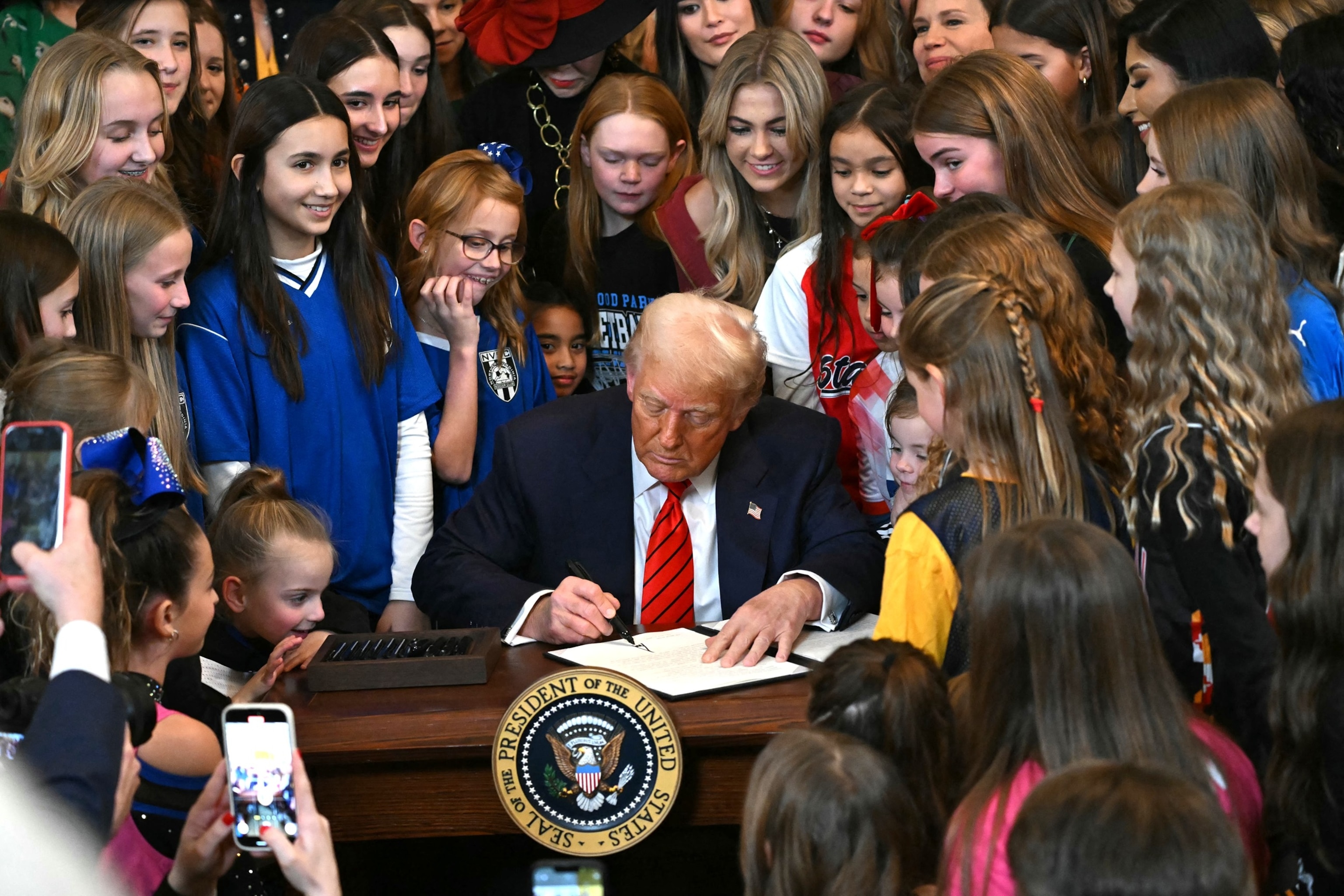
President Donald Trump signs the No Men in Women’s Sports Executive Order into law in the East Room of the White House in Washington, Feb. 5, 2025.
Andrew Caballero-Reynolds/AFP via Getty Images
NCAA President Charlie Baker said in Senate testimony in December 2024 that out of the more than 500,000 participants, he was aware of fewer than 10 trans athletes with the NCAA.
The organization said in its announcement on Thursday that the policy is effective immediately and will apply to all student-athletes regardless of previous eligibility under the organization’s past policy.
“We strongly believe that clear, consistent, and uniform eligibility standards would best serve today’s student-athletes instead of a patchwork of conflicting state laws and court decisions. To that end, President Trump’s order provides a clear, national standard,” Baker said in the statement.
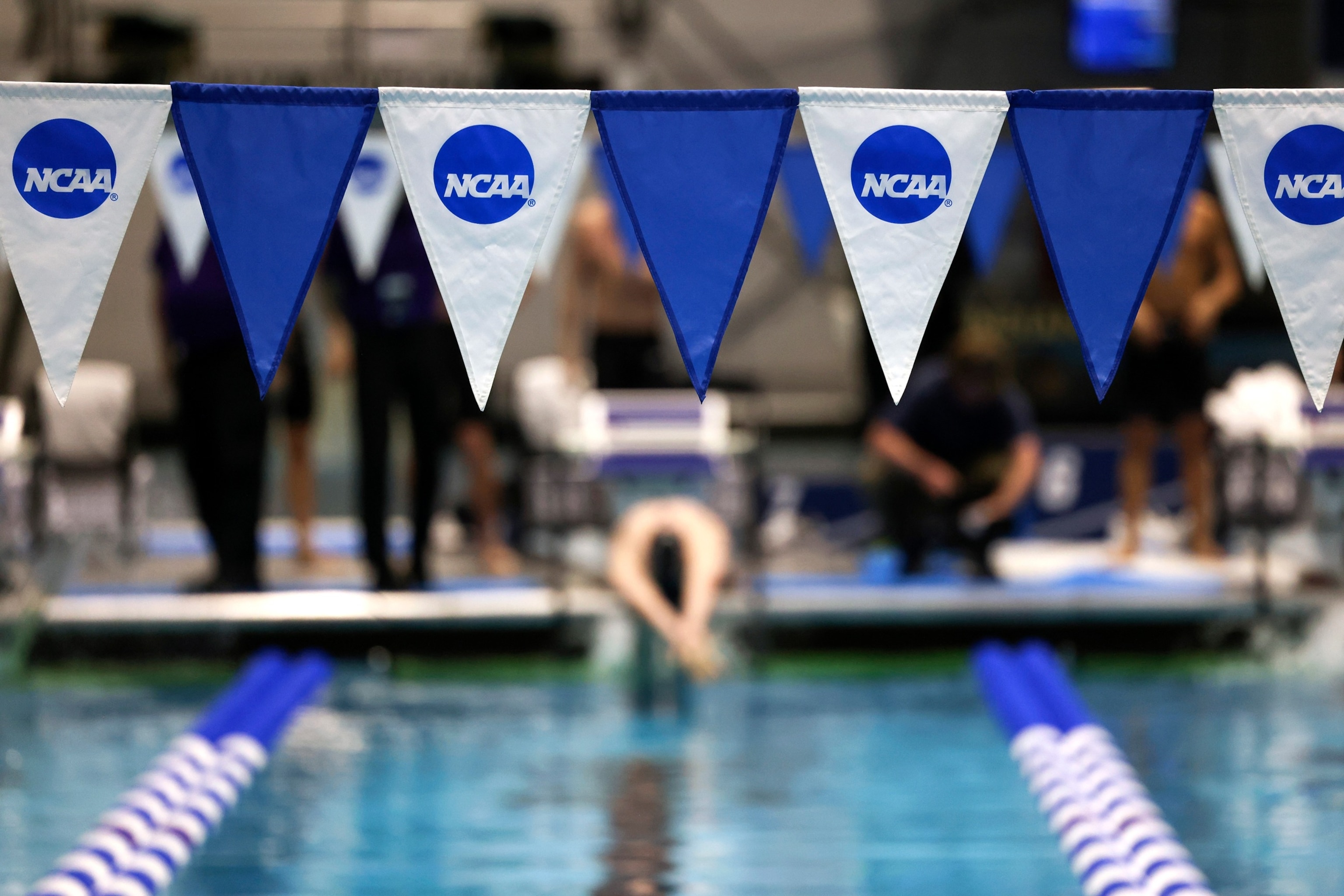
In this March 29, 2024, file photo, pennants with the NCAA Logo hang over the pool at IU Natatorium in Indianapolis.
Joe Robbins/NCAA Photos via Getty Images, FILE
The announcement also noted that the organization had updated its “Mental Health Best Practices,” adding that it “requires all schools to make mental health services and resources available to all student-athletes consistent with the Mental Health Best Practices.”
“The updated policy combined with these resources follows through on the NCAA’s constitutional commitment to deliver intercollegiate athletics competition and to protect, support and enhance the mental and physical health of student-athletes,” Baker’s statement continued. “This national standard brings much needed clarity as we modernize college sports for today’s student-athletes.”

